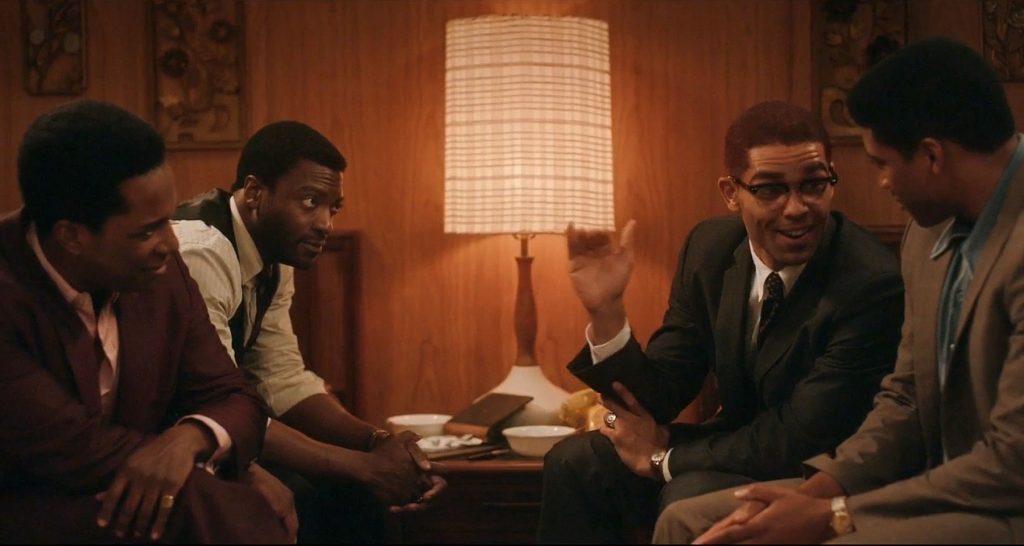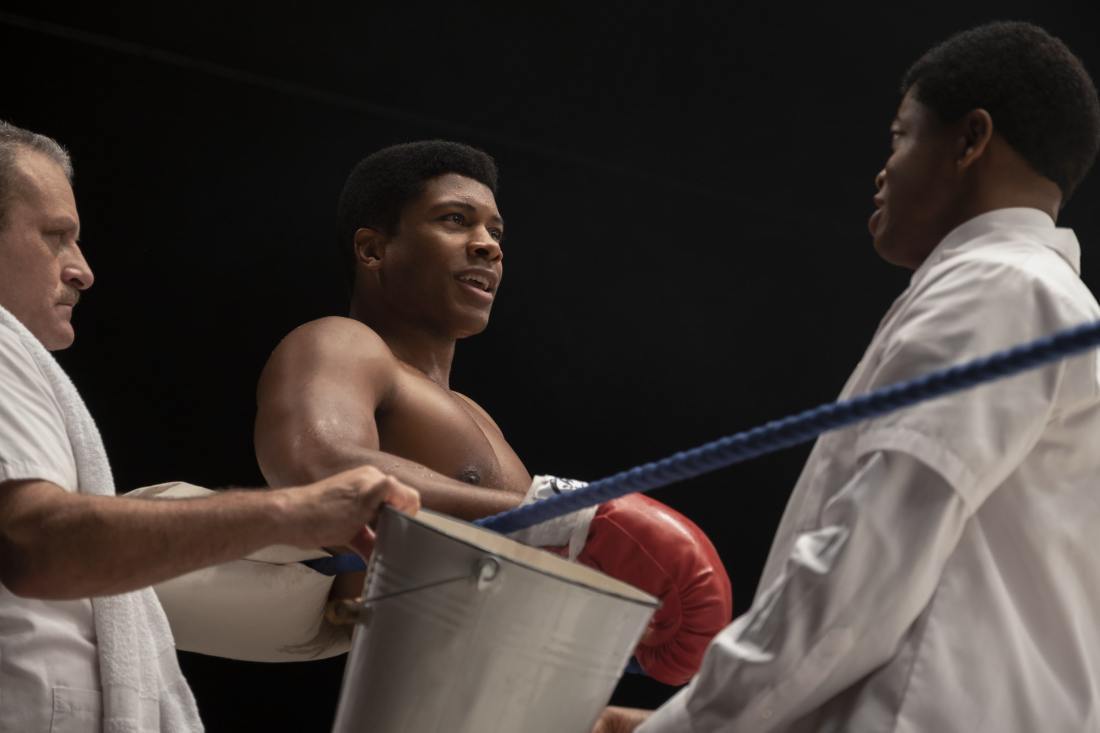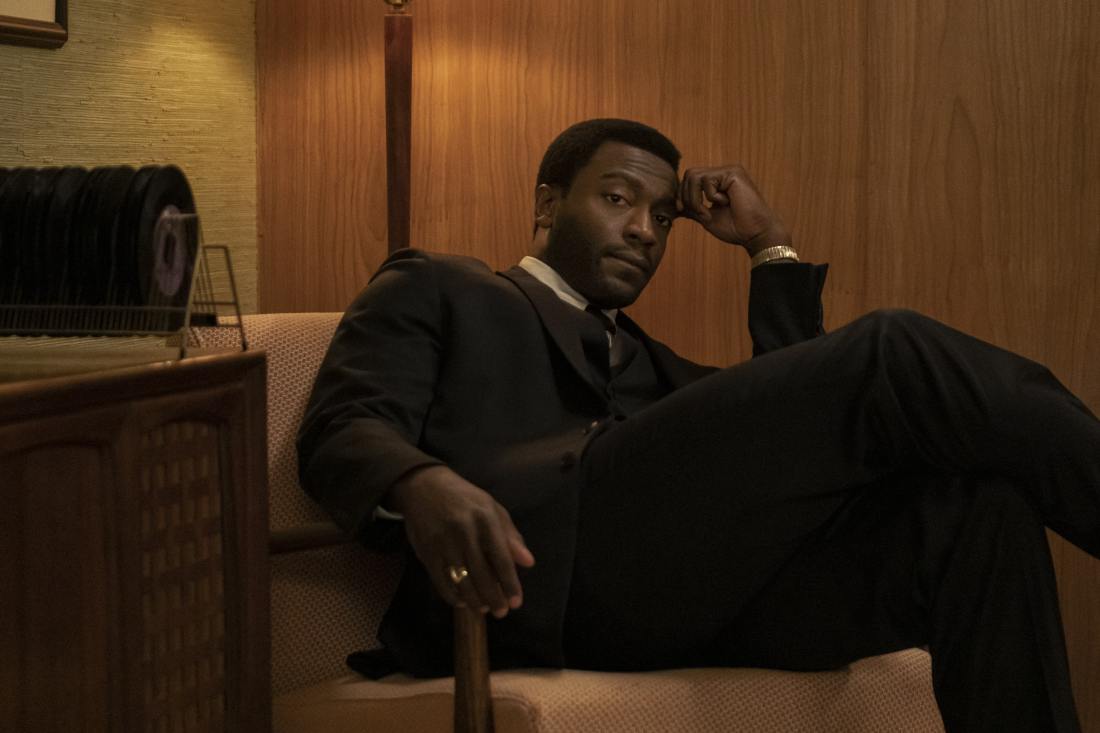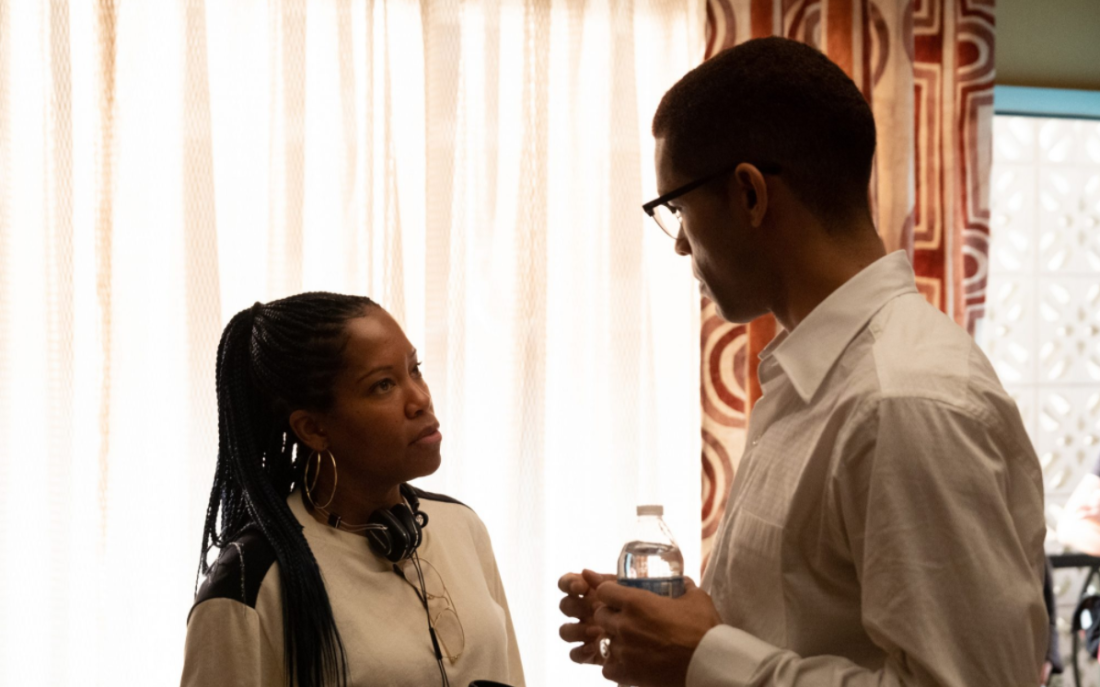One Night in Miami (2020) is the directorial debut of actress Regina King, best known for her Oscar-winning turn in Barry Jenkins’ If Beale Street Could Talk. Adapted from a stage play, it tells the story of four famous black men – Cassius Clay, Malcolm X, Sam Cooke and Jim Brown – who meet up to celebrate a night out on the town. It screened at TIFF and Venice earlier this year to strong reviews and will debut in theaters this December. Is this going to be a major Oscars player?

When you’re adapting a story from one medium to another, there are certain pitfalls you need to avoid in order for it to translate to film. If it’s a book, you have to make sure your characters aren’t in their own heads too much. If it’s a TV show, you have to rein in the subplots and distill the plot to its barest essence. And if it’s a stage play, you have to expand the scope of the world so it doesn’t feel like people sitting around and talking in static locations. Unfortunately, the latter is a quality that One Night in Miami isn’t able to avoid as the film largely consists of these four men sitting in a hotel room and talking. Films have succeeded with this format before, and if the writing is strong enough you can still tell a story set in just one location and make it work. And while this film’s dialogue is solid and the conversations between these famous men are entertaining, the film is still a chore to get through at times and it needed a bit more work to spice things up for the silver screen.
Much of the problem with this film is that it doesn’t really go anywhere – literally or figuratively. It starts with a loose plot point of these four men gathering to celebrate Cassius Clay’s world championship win, but quickly peters out as they just sit around their hotel room for the next hour-plus and talk about life and social issues. Don’t get me wrong, the conversations they have are enlightening and informative, but there’s so little going on visually that it was hard to stay dialed-in. I mean for god’s sake, they’re in Miami!! Why not have them out on the town, taking in the sights, having mini-adventures that provide context to their dialogue and drive their character arcs forward? I sincerely believe that you could watch this movie blindfolded for the middle hour and not lose a single shred of context to the dialogue. I’m a firm believer that the best film stories involve character traits being revealed through action, not words, and rarely does this film accomplish this.

Aside from the issues adapting the story to a more visual medium, I also found the screenplay rather unsubtle and on-the-nose at times. One early scene features Jim Brown visiting an older (white) acquaintance at his home, having an enthusiastic conversation with him on the porch, only to be told he cannot enter the house itself because “n***ers aren’t allowed”. It’s an effective scene, but it could have been done in a less obvious way that shows us, rather than tells us, the discrimination he faces as a black man. This is a recurring problem with the film’s plot: because there are close to zero outside forces influencing these characters during the runtime, every moment of change feels contrived and inauthentic. This isn’t a problem for a play, where dialogue is basically the only tool available to deliver exposition and develop character, but films have so many other tools at their disposals to provide a more satisfying experience for the audience. There’s nothing I hate more in film than the feeling that the filmmakers are spoon-feeding me the themes and telling me how to feel, rather than allowing those feelings to develop more naturally. This isn’t as bad as something like Green Book in that regard, but it’s far from perfect.
But let’s set those problems aside and talk about the film’s main selling point: the illuminating conversations between four powerful black men. We meet these men at an interesting point in time, as they’ve each achieved fame and respect in the world while other black men and women protest injustice and fight to get theirs. These men vary wildly in how they feel they ought to handle the shifting culture: those like Sam Cooke feel it’s best to keep your head down until the danger passes, while others like Malcolm X insist on confronting trouble head-on and using their power and influence for good. Sam Cooke’s arc in particular was enlightening as his friends criticize his spineless music designed to appeal to white folks, but this is true for the others as well – particularly athletes Clay and Brown, who grapple with the pressure from white sponsors to remain uncontroversial and not say anything that would inflame white America. While they are black men, they also enjoy some element of privilege due to their wealth and status, so the story largely centers on their realization of that privilege and resolving to be better about it.

While the second act drags considerably, the film concludes in a rousing manner as Sam Cooke debuts his brand-new song, “A Change Is Gonna Come,” to the world. It’s a stirring and emotional moment that reflects Cooke’s own character arc, as he’s gone from making inoffensive music for the masses to creating something meaningful and impactful that addresses social issues of the time. It’s a powerful moment that makes great use of a classic song (and lends greater context to its messaging), but part of me feels cheated by its use in the film. It’s a fantastic song regardless of context, and it has the power to draw emotions out of the audience no matter what. Did the film do enough to justify its use of the song, or does it rely on the song for its big emotional finish that might not be totally earned? It reminded me of the use of Sondheim’s “Being Alive” at the end of Noah Baumbach’s Marriage Story: a similarly-powerful moment that sums up the character’s arc well, but feels like an easy way out to wrap up the themes and stir easy emotions. I’m a little more lenient with this song’s usage because it actually makes sense in the context of the story and character, but it’s a shame that it’s the highlight of the film because the filmmakers didn’t have to do anything special to lend emotion and resonance to the moment. We’ll see if I still feel this way on rewatch or not.
Another obvious highlight of the film is the acting ensemble, which is stellar all-around. I can’t decide who my favorite was: Eli Goree as the bombastic Cassius Clay, Kingsley Ben-Adir as the reserved and conflicted Malcolm X, Leslie Odom Jr. as the more carefree and easy-going Sam Cooke, or Aldis Hodge as the contemplative Jim Brown. The script does a fine job of distilling these men’s essences and using their known character traits to inform the direction the plot takes. Regina King’s direction is also solid; she gets few favors from the script as there are limited sets to work with, but she does the most with the material. I was often bored with the static pacing of the plot, but she keeps things interesting on-screen so I could at least passively enjoy whatever we were seeing. Unfortunately I did not much care for Terence Blanchard’s score, which was bland and uninspired. He is Spike Lee’s longtime collaborator and I haven’t cared much for his work in those films either…oh well.

Conclusion
One Night in Miami is fine, but nothing spectacular. It’s thematically-rich with great characters and interesting conversations, but there just wasn’t enough happening visually to hold my interest. If there had been more urgency to the plot, or things for the characters to do besides sit around a hotel room and talk to each other, I would have enjoyed it a lot more. This falls into the same trap as other theatrical adaptations that fail to escape the “stage-y” feel and make full use of cinematic language. Regina King does a decent job in her directorial debut, but I can’t help but feel the film would’ve been in better hands with someone who has more experience adapting a story from one medium to another. But hey, Chicago was a directorial debut too and that was fantastic so maybe I’m barking up the wrong tree and the script is entirely to blame. In any case, the film has its moments and the ending is strong – I just wish the second act had more going on.
VERDICT: C+
All image rights belong to Amazon Studios.
Thanks for reading! I’m continuing to check out new films through virtual film festivals, so stay tuned later this week for my thoughts on films like Nine Days and New Order! See you all soon.
-Austin Daniel